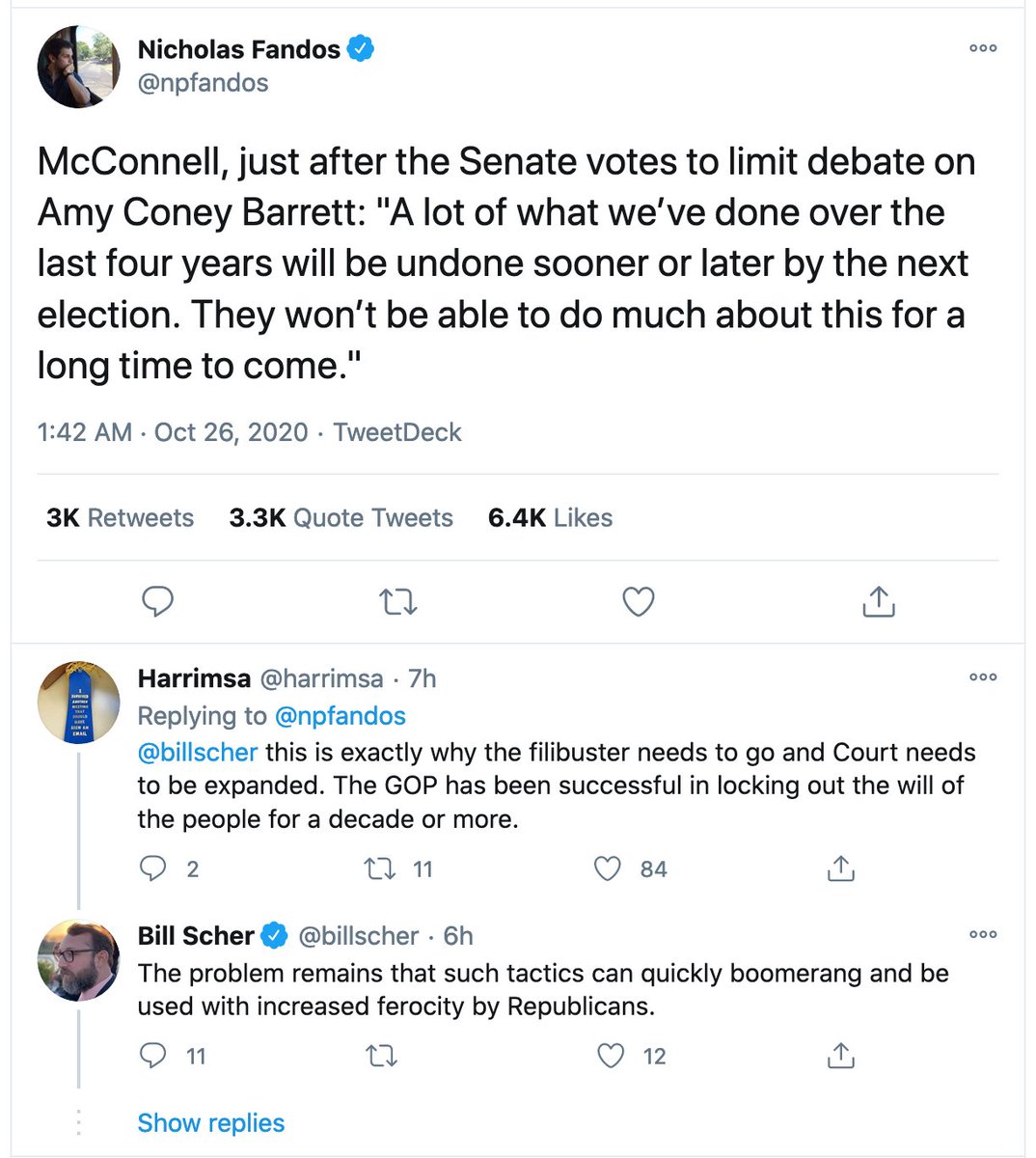Yep. That& #39;s the argument. And the counterargument from @billscher. Let& #39;s game it out. R& #39;s want to maintain the fiction that their 6-3 partisan lock is just for extra safe & #39;balls and strikes& #39; purposes. This allows them to do a lot without getting R fingerprints on it. 1/
Suppose D& #39;s expand the court to 12. I think 12 is a really good number because it doesn& #39;t seek partisan dominance. It seeks partisan parity. It suggests a reasonable settlement. & #39;Split it in half& #39; is good solution to many intractable problems. Why not this one? 2/
It also implies an attractive norm, going forward. No partisan issue is going to get settled without some bipartisanship on the court. If you have 7-5 decisions in favor of some partisan thing, you can be sure it& #39;s not just & #39;activism& #39; - i.e. not another Bush v. Gore or Shelby. 3/
Now suppose R& #39;s won& #39;t stand for it. Suppose they come roaring back and expand the EC again to 15, giving themselves the 3 Justice partisan edge to which they feel they are entitled. (Mitch& #39;s ruthless Machiavellianism, plus eating Trump& #39;s dirt, bought them this. Fair is fair.) 4/
This is @billscher& #39;s worry. Is it a real worry? No and yes. First, it isn& #39;t just going to go on like this, probably. At some point - and pretty quick, I would bet - it& #39;s going to get ridiculous in the eyes of the public. Which brings me to two. 5/
If it comes to dueling rounds of & #39;expand the court& #39;, with the D& #39;s seeking balance and the R& #39;s seeking unchecked dominance, so that they can use the court as a super-legislature, to do unpopular things, at some point it& #39;s going to get flagrantly obvious this is going on. 6/
D theories of jurisprudence vary, but do not rest on fictions the way the R & #39;balls and strikes& #39; theory does. The R strategy for the court depends not just on packing it with hand-picked activists but maintaining a fiction about the non-partisan character of that dominance. 7/
Even if the R& #39;s respond to an attempt to balance the court with a counter-attempt to unbalance it right back, such dueling rounds of & #39;expand the court& #39; will shatter the fiction of & #39;balls and strikes& #39;. It& #39;s hard to believe anyone fails to see it, even now. 8/
But eventually, if things escalate, no one is going to be able to miss it. From the D perspective, this is less bad than what we& #39;ve got now. All of this gives us reason to believe that the R& #39;s actually won& #39;t just respond in kind if the D& #39;s expand the court by 3, say. 9/

 Read on Twitter
Read on Twitter


